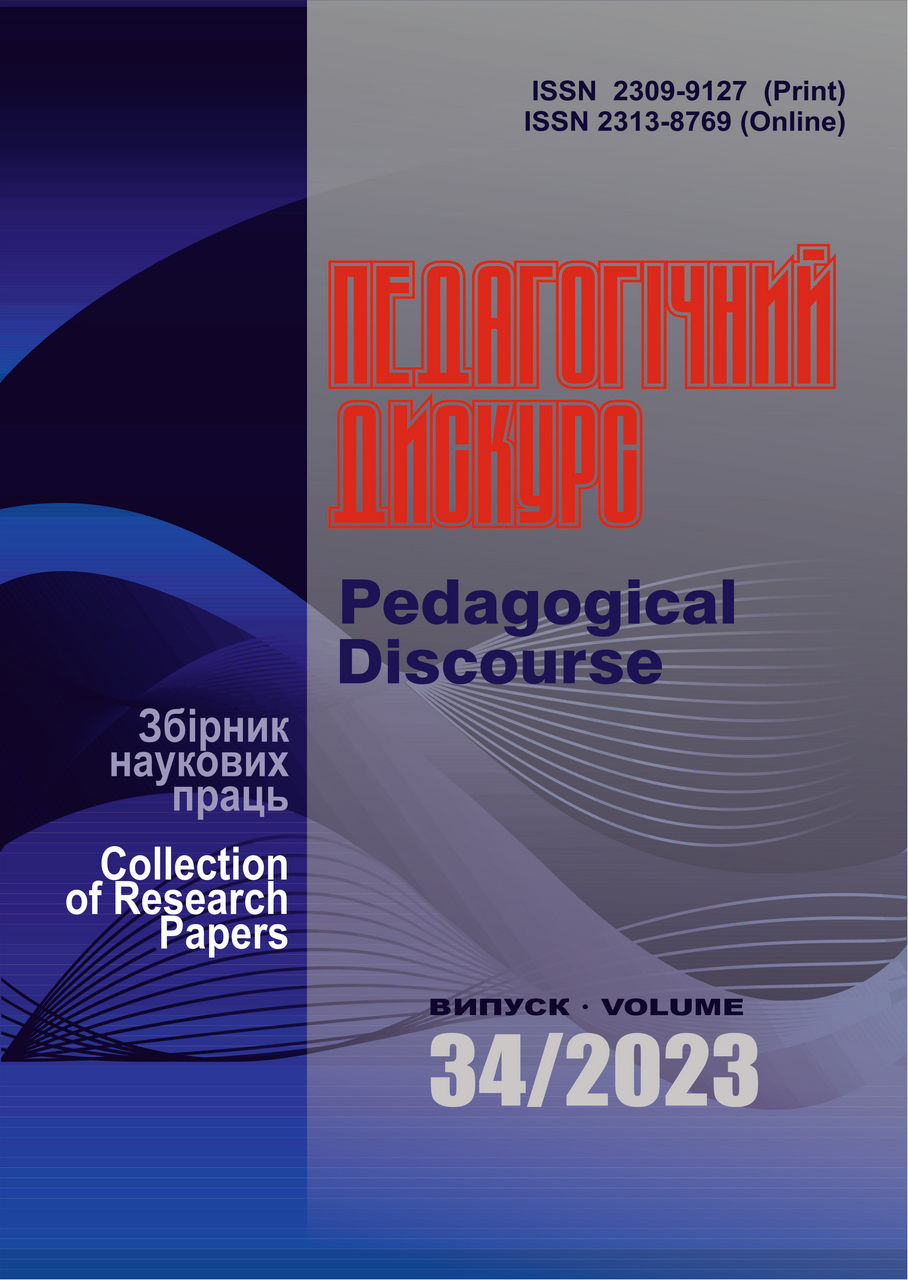Evolution of Custody System in Ukraine within the Development of Education and Religion in 14-17th Century
Abstract
The paper presents a new stage of social custody evolution where organs of state management, educational and religious institutions performed a crucial role in the gradual development of inclusion and demonstrated results of practical experience in the problem. The author explicates basic elements of life conditions of the people living on the Ukrainian territories, their struggle for the religious scholasticism and superstitions, role of a personality in these processes. The paper shows the period of new state authorities formation, activities of municipal bodies and, as a result, foundation of specialized organs and institutions. Increase of social influence and understanding the necessity of custody resulted in formation and state maintenance of a chain of rehabilitation and educational establishments. They served the basis of the spread of the humanitarian ideas on the Ukrainian territories in the early period of the New Time. Introduction. Importance of taking inclusion into account for the sustainable development of society has been the point for consideration for several centuries. The concept of custody has acquired broad application in such spheres as education, economics, legislation, politics, psychology, social processes due to the vast heritage of the previous generations. It becomes more important on the background of integration of the Ukrainian territories into the general European area which resulted in acquiring new experience and formation of new traditions concerning social custody, gradual variation of social basis and service. Objectives of the research. The paper seeks to objectively analyse the phenomenon of inclusion in its source as an important component of the social life of Europe in the 14-17th cent. The interpretation of historic evolution and state influence on the social treatment of the disabled should represent unbiased situation of the described period. The research aims at stating definite chronological stages, geographical boundaries and logical consequence of the demolishing of the social constraints and inclusion of new strata of population into the life of community. It helps to classify a set of directions which inclusion processes used to follow in New Time on the territory of Ukraine. Methods. The contemporary Ukrainian theory of education follows unbiased and objective principles of the study of history of education and rejects the former Soviet-Russian doctrines and stereotypes. The independent, original and well-grounded approaches are developing in the research of the historic past devoid of myths and falsifications. The scholarly attention is more often concentrated on the research conducted by the European scholars as well as the positive experience of upbringing of young generation. The present study considers both classical and recent research and publications in order to achieve the objectives and verified results. Results. The research shows that custody system in Ukraine has a long and rich history arising from the social and state conditions of each historic period. What this aspect was much influenced on was the introduction of Magdeburg Law spread to numerous Ukrainian cities and towns, religious impact and activity of the catholic priests, development and spread of education, especially universities, enhancement of trade and other relations.
The research shows that termination of Ukrainian states in the 14th cent. did not influence significantly on the social custody in the society. Further development of state management, social and political transformations of the 16th cent. enabled new directions of inclusion to appear. The earliest educational establishments, Catholic church and religious schools, social institutions and organizations provided wide experience of custody. The schools of training of professional caretakers were founded and functioned successfully.
It used to be widely practiced when differently abled people stayed at the monasteries. They become the institutions equipped with the proper housing, material resources and practical experience for treating the disabled.
Conclusions. The history of custody on the territory of Ukraine reflects the state transformations resulting in the influence on social structures and particularly the life of certain strata. The system of custody during its formation and improvement went through different stages, from recognition of differently abled people as members of the community to their inclusion into activities. It valued ideas of the Renaissance period, abounds in names of national scholars and humanists, evolution of community attitudes towards the disabled and the poor.
Downloads
References
Боднар, В. І., & Золотоверх, В. В. (2007). Історія олігофреннопедагогіки. Підруч. Київ: Знання. [in Ukrainian]
Бондар, В. І., Синьов, В. М., & Тищенко, В. В. (2012). Тенденції розвитку освіти дітей з психофізичними вадами в Європі та Україні. Збірник наукових праць Кам’янець-Подільського національного університету імені Івана Огієнка. Сер.: Соціально-педагогічна, 19 (1), 10. [in Ukrainian]
Гаврилов, О. В. (2009). Особливі діти в закладі і соціальному середовищі. Навч. посіб. Кам’янець-Подільський: Аксіома. [in Ukrainian]
Гошко, Т. Д. (2002). Нариси з історії магдебурзького права в Україні (XVI – початок XVII ст.). Львів: Афіша. [in Ukrainian]
Історія та теоретичні основи технології соціальної роботи в Україні. (2020). Навч.-метод. посіб. (Авт.: Палилюлько, О. М, Кучеров, Г. Г., Шевчук, О. В., Гуменюк, І. М., & Сторожук, Н. Р.). Тернопіль: Економічна думка. [in Ukrainian]
Квас, О. (2009). Особливості трактування категорії дитинства в Стародавні часи. Вісник Львівського університету. Сер.: педагогіка, 25, 322–323. [in Ukrainian]
Кравець, В. П. (1994). Історія української школи і педагогіки. Курс лекцій. Тернопіль. [in Ukrainian]
Медвідь, Л. А. (2003). Історія національної освіти і педагогічної думки в Україні. Київ: Вікар. [in Ukrainian]
Менько, В. (2021). Церковні братства в громадсько-політичному та етноконфесійному житті XVI–XVII ст. у світлі української історіографії. Наукові записки Вінницького державного педагогічного університету імені Михайла Коцюбинського. Сер.: Історія, 35, 87–96. [in Ukrainian]
Мицик, Ю. (2015). Св. Петро Могила. Харків: Бібколектор. [in Ukrainian]
Навольська, Г. (2008). Система освіти ордену Єзуїтів у контексті традицій епохи Просвітництва. Вісник Львівського університету. Сер.: педагогіка, 23, 283. [in Ukrainian]
Палилюлько, О., & Гуменюк, І. (2021). Історичний екскурс: роль держави у сфері соціального захисту та допомоги населенню на українських землях в литовсько-польську добу. Вектор Поділля, 4, 217–220. [in Ukrainian]
Copyright (c) 2023 Pedagogical Discourse

This work is licensed under a Creative Commons Attribution-NonCommercial-ShareAlike 4.0 International License.

















